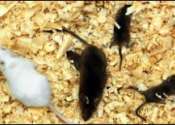Nasal spray device for mental illness
Researchers at the University of Oslo have tested a new device for delivering hormone treatments for mental illness through the nose. This method was found to deliver medicine to the brain with few side effects.
Aug 28, 2015
0
72






